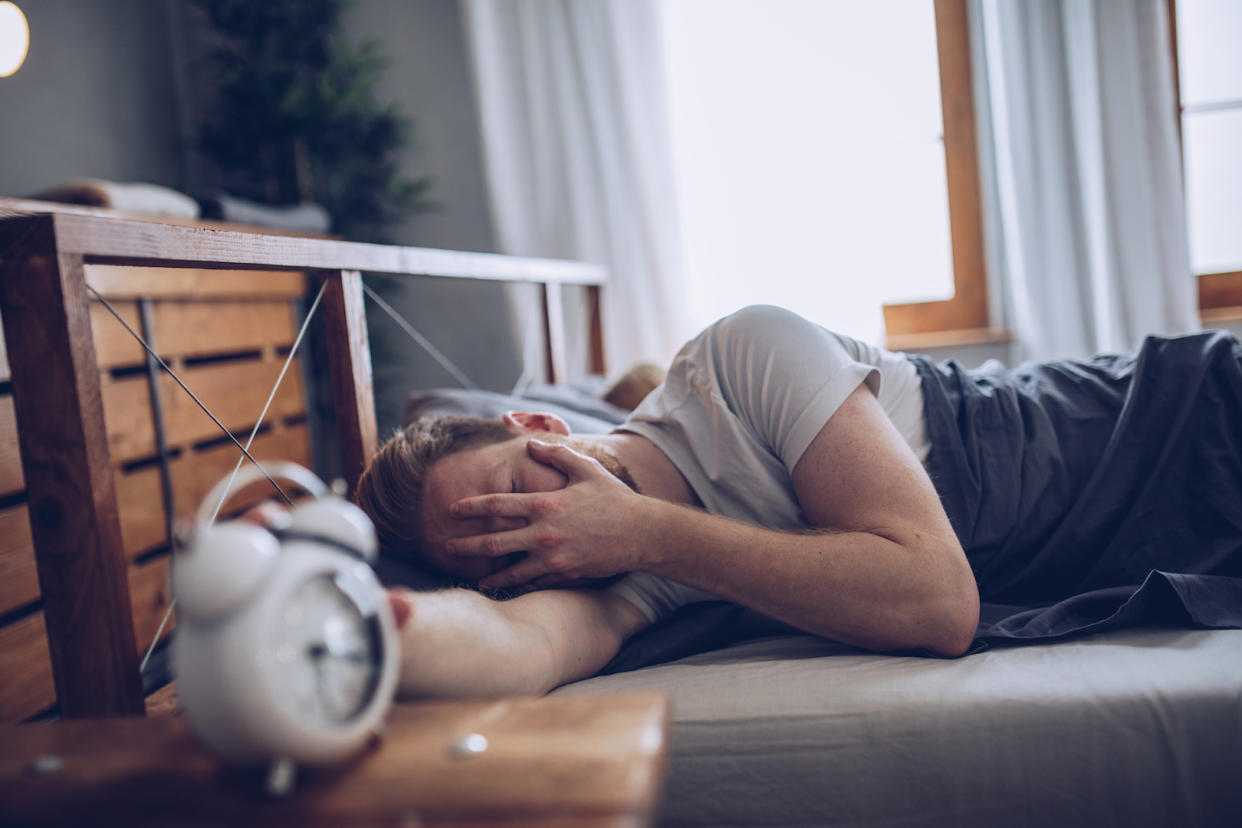Hangover-free synthetic alcohol could soon change the way we drink

Hangovers will soon be nothing but a distant headache with news that a synthetic alcohol could be available to purchase in the next five years.
Professor David Nutt, director of the neuropsychopharmacology unit at Imperial College London, has created ‘alcosynth’, a faux booze branded as ‘Alcarelle‘.
READ MORE: Alcoholic still water has landed
Nutt worked alongside partner David Orren on the revolutionary product after losing his job as the UK government’s chief drug adviser for claiming that ecstasy and LSD are less dangerous than alcohol.
The aim of the product is to provide the socially relaxing qualities associated with drinking but minus the dreaded hangover and potential health risks involved with being inebriated.
![We may finally be able to bid farewell to the painful office hangover [Photo: Getty]](https://s.yimg.com/ny/api/res/1.2/4PUckWrTZ0eX0SN_2PP6GA--/YXBwaWQ9aGlnaGxhbmRlcjt3PTk2MDtoPTY0MQ--/https://media.zenfs.com/en/homerun/feed_manager_auto_publish_494/cb0dbcfadc6a93ea1653a75b87a17e03)
How does it work?
Nutt was studying the effects of alcohol on the Gaba system (a class of receptors that respond to the neurotransmitter gamma-aminobutyric acid) when he noted that ‘alcosynth’ can identify the receptors which induce tipsiness while avoiding those that give adverse side effects such as headaches.
READ MORE: Can you cure a hangover?
“We know where in the brain alcohol has its ‘good’ effects and ‘bad’ effects, and what particular receptors mediate that – Gaba, glutamate, and other ones such as serotonin and dopamine,” Nutt explained.
“The effects of alcohol are complicated but you can target the parts of the brain you want to target.”
The aim of the synthetic booze is to give drinkers the choice of whether to feel the full effects at a party or to choose a drink which will allow you to have lunch with co-workers without getting drunk.
READ MORE: Why you should never put vodka in the freezer
So far, Alcarelle has only been tested by Nutt and fellow researchers so will need to undergo safety testing before it can be sold.
But the team hope to work in collaboration with food scientists over the next five years in order to have the molecule regulated as a food ingredient.
This will prove that the product does not “produce toxicity like alcohol”, Nutt explains.


